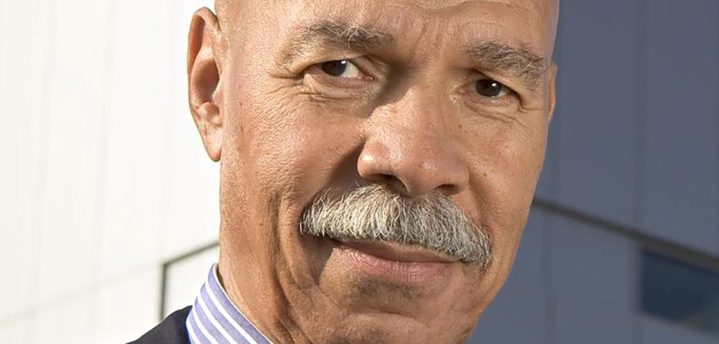TRIBUTE
Remembering US anti-apartheid activist Randall Robinson, founder of TransAfrica

The human rights lawyer and anti-apartheid activist Randall Robinson died on 24 March on the Caribbean island of St Kitts at the age of 81.
In 1977, Randall Robinson founded TransAfrica Forum, a Washington, DC-based think tank and advocacy organisation that championed the causes of Africa and the African Diaspora.
Quickly, TransAfrica became the vanguard anti-apartheid organisation in the US. Despite thin funding, TransAfrica launched a broad and effective campaign combining public protests, usually outside the South African embassy and involving prominent black athletes, politicians and entertainers, among them Harry Belafonte, Stevie Wonder, Dick Gregory and Arthur Ashe.
Robinson was also an irritant to the Reagan administration’s policy of “constructive engagement” toward South Africa and rallied sufficient support in Congress to lobby for passage of the Comprehensive Anti-Apartheid Act (CAAA) of 1986 and override President Ronald Reagan’s veto of the act.
Robinson relished confrontation, not dialogue. In his book High Noon in Southern Africa, former Assistant Secretary of State Chester A Crocker opined that Robinson “wanted attention and confrontation, not communication”. With the Rev Leon Sullivan, Robinson pressured US companies and pension funds to divest from companies operating in South Africa.
Like Arthur Ashe, Robinson was born in Richmond, Virginia, a city known for its tobacco, Confederate monuments, segregation and Jim Crow laws. His brother Max became the first black journalist to host a major US news programme. Ambition was not a stranger to the Robinson household.
Robinson attended a historic black university and gained admission into Harvard Law School where he met his first white classmate. Unlike his Harvard Law classmates, Robinson eschewed the world of corporate law and became a public interest lawyer in Boston before joining the staff of two legendary black Congressmen, Charles Diggs and William Clay — founders of the now powerful Congressional Black Caucus.
However, it was at the gates of the South African embassy that Robinson will always be remembered. Charlie Rangel, a former chairperson of the Congressional Black Caucus and a driving force behind the passage of the Africa Growth and Opportunity Act, said in the Washington Post, “If I had to identify one person [in the United States] responsible for ending apartheid, it would be Randall.”
Faded from spotlight
While the sanctions imposed by the CAAA and the shaming of South Africa in global cultural and sports arenas had a significant impact on South Africa’s pivot from oppression to democracy, one never got the impression that they were as consequential when viewed from a South African lens.
After all, being taken away in a paddy wagon with celebrities and before throngs of media in a show arrest on Embassy Row did not equate with massive oppression at home or with years in prison or decades in exile.
Upon the release of Nelson Mandela from prison in 1990, TransAfrica and Robinson quickly faded from the spotlight. South Africa moved quickly, if unevenly, toward its first democratic election in 1994.
I always got the impression that Robinson felt that he and TransAfrica should have had a louder voice in South Africa’s new political order, but other than a few symbolic pats on the back, their efforts were largely relegated to the category of “doing the right thing is its own reward”. His relations with Mandela were reported to be cool, at best.
TransAfrica never found another “gig” that could galvanise its celebrity supporters. Funding quickly dried up and the organisation folded — perhaps too wedded to the visage of Robinson and the opprobrium directed toward a defanged racist regime.
Perhaps owing to his fading from the spotlight and the enduring challenges that continue to confront black activists, Robinson emigrated to St Kitts in 2003 with his wife and memories of an impactful life. DM
Tony Carroll is the director of Acorus Capital and adjunct professor in the African Studies programme at Johns Hopkins University.



















 Become an Insider
Become an Insider
Comments - Please login in order to comment.